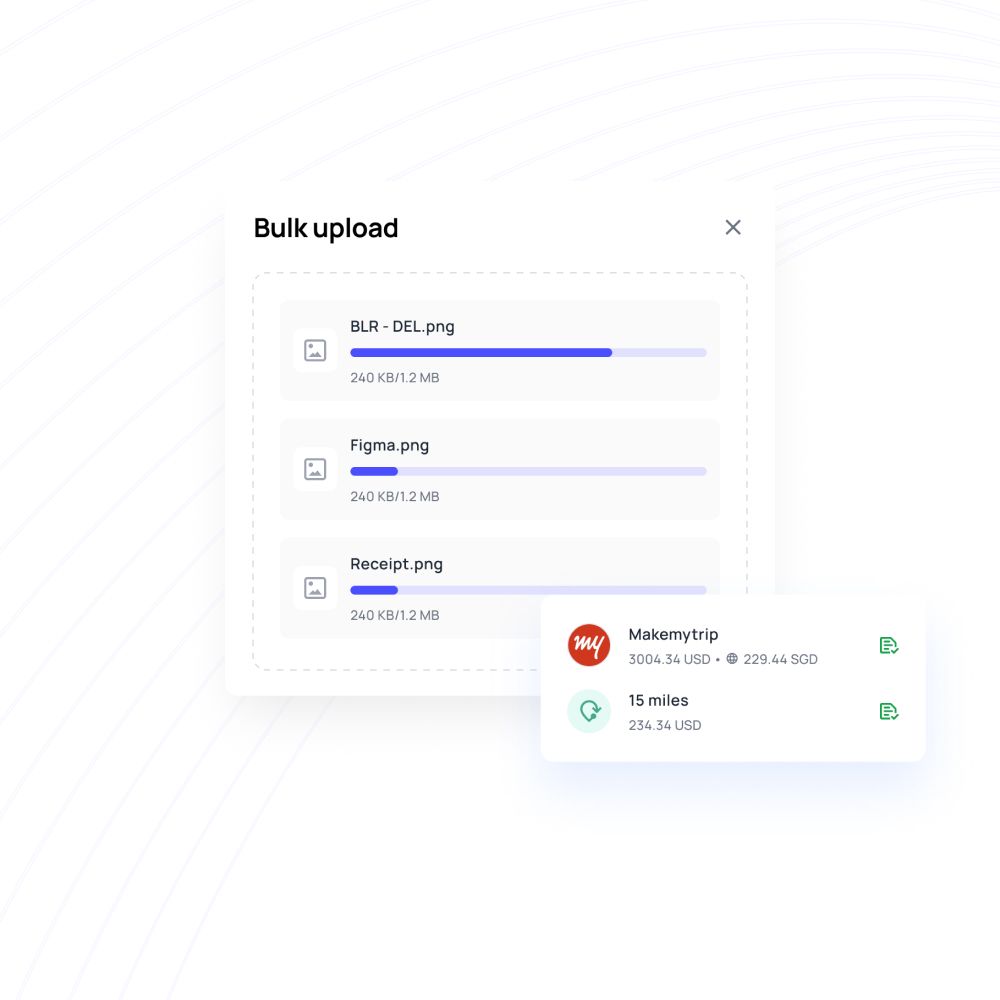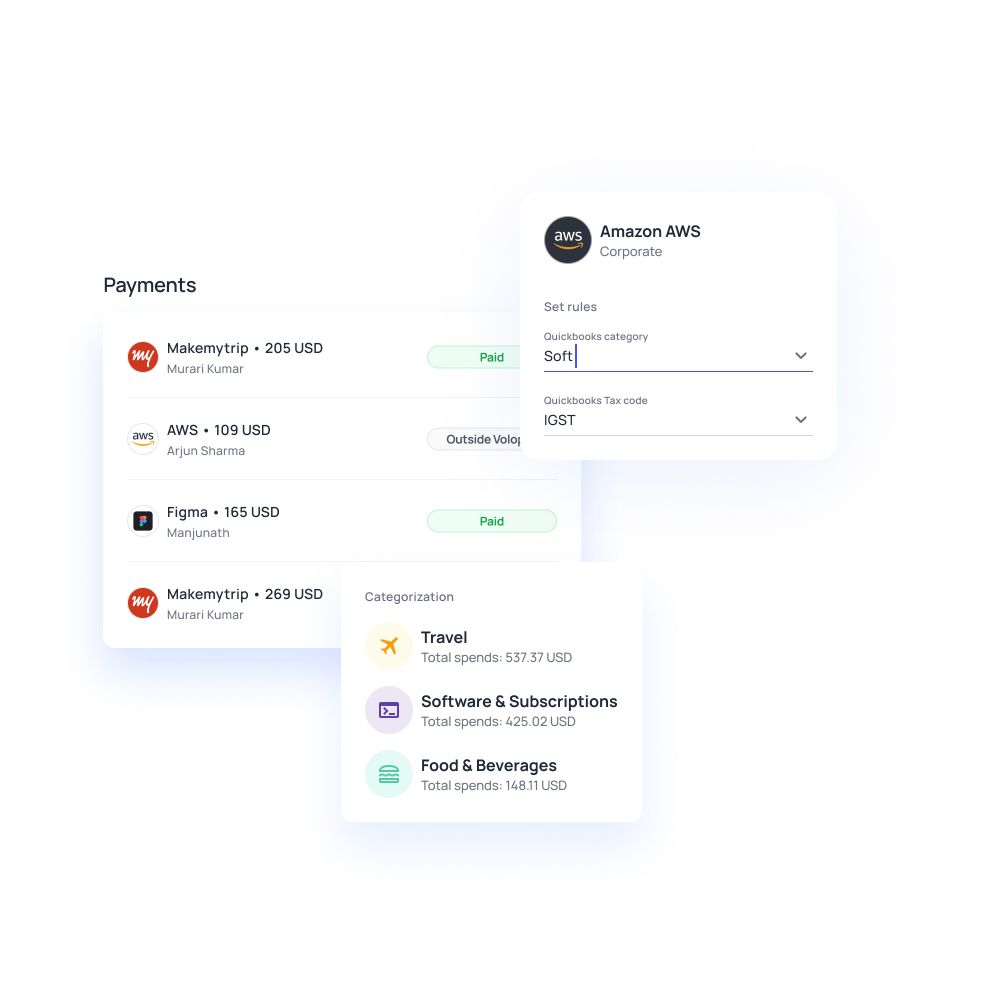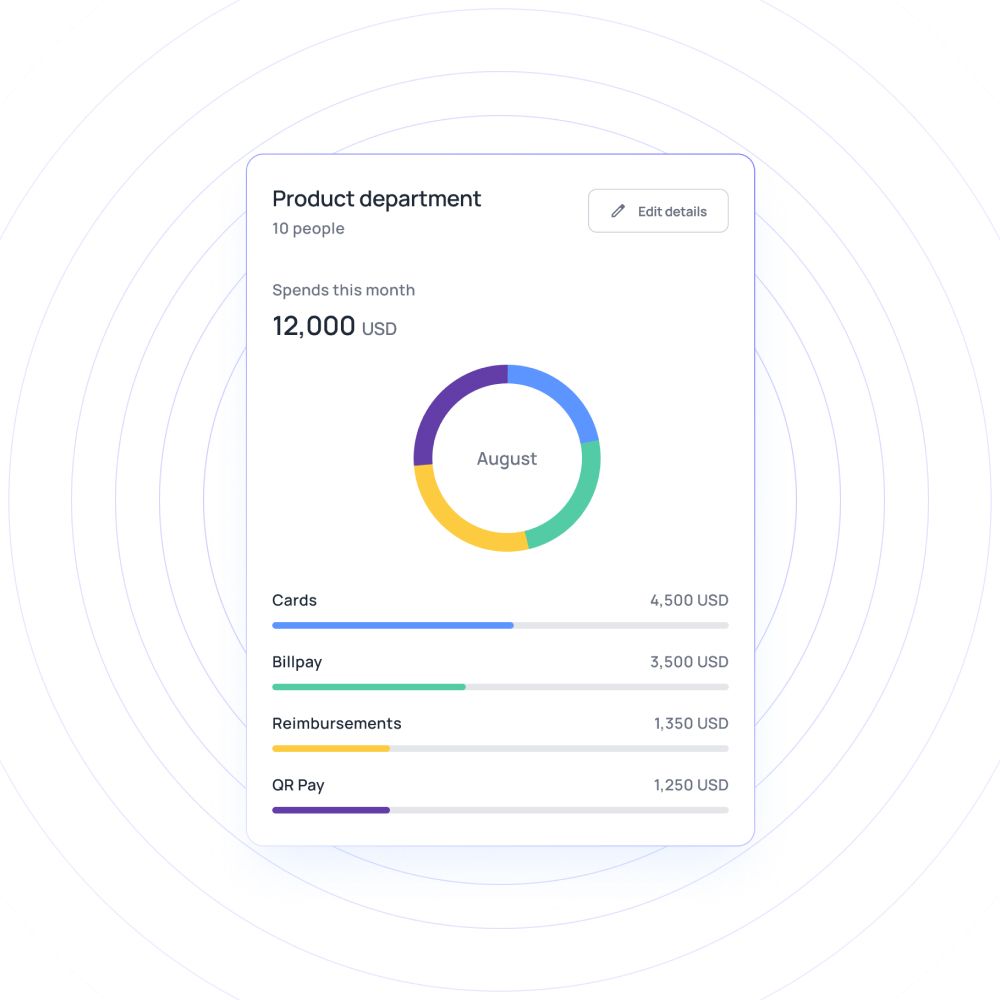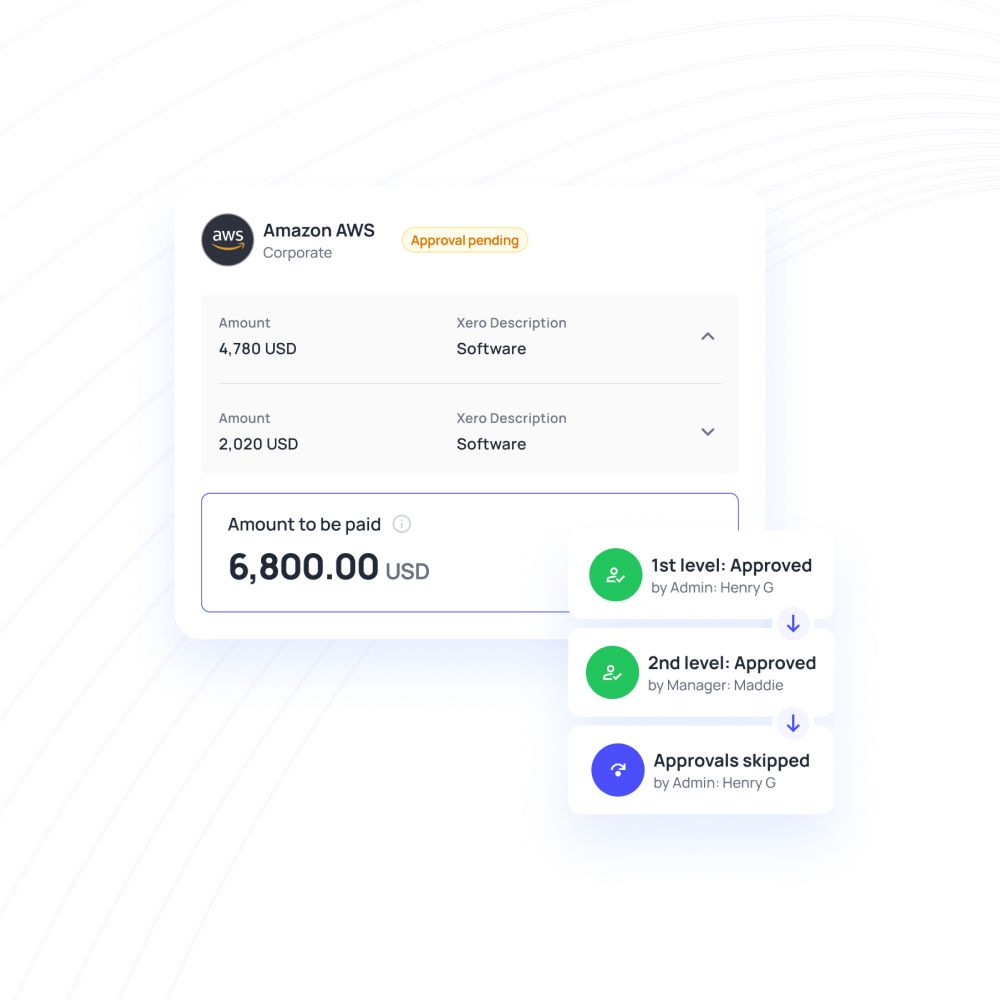How to reduce business travel expenses?
Business travel expenses are one of the leading factors capable of draining a company's financial resources. It is also quite difficult for a company to unlock a truly efficient corporate travel management system. Every company wants to get on top of their business travel expenses without incurring revenue losses and additional costs.
However, they often do not realize that inefficient travel policies and approaches can put an excessive burden on travel expense management. But, what's a problem without a solution? Volopay has designed a robust and inch-perfect travel expense management system that lets you effortlessly manage your business travel costs.
What is corporate travel management?
Corporate travel management is the system through which companies oversee and manage business-related travels of employees, from start to end. This includes planning the trip itinerary, creating a corporate travel budget, choosing accommodation and commute options, estimating the meal costs, setting per diem allowance, setting compliance rules, and more.
To put it simply, a corporate travel policy is created to govern all the travel costs and related decisions to guide them in one direction to keep it capped under one roof. Every company has its own travel management system, either by outsourcing to a travel agency or creating a dedicated department for travel expense management.
However, the latter alternative increases the indirect costs of operations twofold; as for the former, trusting your company's travel data to a third party might not be appealing to every business owner.
What are the costs to consider during corporate travel?
Just because companies are liable to finance employees' travel and stay expenses does not mean it covers personal costs.
Companies explicitly state travel categories and which expenses are borne by them and the ones which are the employees' responsibility. Some general costs are considered by all companies.

Cost of transportation
When you say travel expense, transportation is the most significant and critical cost. Transportation covers commuting from one place to another via flight, train, cab, cruise, etc. Every transportation is protected under the travel expense policy from the start of the journey until the employee returns.
However, if the employee travels for a personal benefit, like meeting a friend or relative, it has to paid for by the employee itself.
Cost of accommodation
Another critical aspect of corporate travel management is Accommodation. This basically includes the costs of staying in hotels, resorts, inns, lodges. It be noted an employee does not get to choose the desired Accommodation. The decision lies upon the details mentioned in the company expense policy.
Expenditure on meals and drinks consumed during travel
The company bears all the costs incurred on meals and beverages. Companies might allocate specific budgets for food and beverages as well.
How can corporate travel become a burden on the finance department?
Companies, whether big or small, face challenges while managing travel expenses. Though other departments might not be directly affected by an inefficient and lagging travel management method, the finance department is definitely bound to take a downfall.

Handling multiple requests
Companies that don't have good corporate travel services often fall victim, as the finance departments have to process all the travel-related procedures. Instead of value-creating tasks, they have to manage employees' entire trip requirements.
Now that the finance team is the central consulting authority, they have to deal with multiple requests and requirements.

Keeping spending under control
The total cost of sponsoring an employee business trip comes hard-hitting to the finance department. Since the finance team is responsible for planning out employees' business trips, they also consider the average cost of the journey.
This cost should not compromise the employee's comfort, nor should it be too pricey for the company to bear.

Monitoring approvals
Often there are some unexpected costs while employees undertake the business trip. In case your company did not include these charges into the trip's costs, employees either need to get approvals before making the expense or file for a reimbursement claim.
This, again, will have to be tracked by the finance department.
Make corporate travel cost-effective
Managing travel expenses is complex, but that does not mean the entire company ecosystem should be disturbed. Adopting a corporate travel management software like Volopay lets you smoothly manage your business trips, corporate travel budget, and necessary expenses.
1. Budget-friendly choices
Choosing extravagant hotels and opting for business-class flights instantly drains your budget; just because these things fulfill a social status does not mean they are optimal every time. To lower your average trip cost, opt for options like Volopay.
These platforms instantly bring you all the alternatives available so that you can choose the best among them.
2. A computerized travel policy
Companies either have no corporate travel policy or if they do have, it's pretty vaguely written with no strict implementation.
With automated travel software like Volopay, you can easily incorporate your travel policy, enforce rules and guidelines, and ensure compliance. Any out-of-policy transaction will immediately be flagged for the management to take action.
3. Data-optimized travel reports
Blindly spending your money without a mechanism to analyze it is a sheer waste of creating expense policies and ensuring compliance. With Volopay, you get spend analytics based on the activity in the software.
You get to know your company's performance in managing travel expenses, whether the travel policy is easy to implement, which expense category contributes the most to the budget, and much more granular details of the travel history.
4. Categorised travel expenses
Your software must indicate the amount spent behind each category to draw clear lines of distinction between departmental spending, hotel spending, flight spending, and more. At the time of month-end close or year-end close, you know the department which traveled the most, how much they spent on meals and accommodation.
This can help you take the right steps when budgets are exceeded or left unused.
5. Self-booking feature
Again, by having a self-booking functionality, employees can easily book flights and hotels for themselves without relying on the finance department. The software runs internal policy checks to ensure the bookings are policy-compliant and the employee does not misuse their authority.
What are the different aspects where you can optimize corporate travel?
Companies with inefficient corporate travel management often force employees to choose between cost savings and comfort, which can ultimately lead to low satisfaction levels. By implementing streamlined and effective processes, companies can better leverage the benefits of business travel, creating a more positive travel culture. This enables businesses to engage with employees, understand their expectations, and enhance their overall experience.
1. Create a well-described corporate travel policy
Draft a clean and straightforward corporate travel policy to ensure no employee travel details slips through the net. Address everything in the policy, from the fundamentals to the advanced processes.
Do not overcomplicate it by creating extreme preventive measures and workflows that can be hard to follow. Be mindful while setting out budgets and travel guidelines. To draft better, speak to employees and converge all the pain points for better problem-solving.
Suggested read: Guide to improve corporate travel policy compliance
2. Save costs on flights
As already mentioned, do not incur unrequired expenses of flight bookings. Look for alternatives that satisfy the employee's comfort and fall within the limits of your spend ceiling. Opting for costlier options will create a cash crunch while financing long-distance international trips.
3. Create pre-approval workflow
Unexpected events or moving beyond the budget are bound to come up while on a business trip. To prevent this, keep certain expenses like taxi fares and meals pre-approved. This way, companies need not manually approve every incoming request. They can simply pre-approve specific expense categories by assigning a spending limit.
4. Plan ahead of the trip
Last-minute plans are often misguided and based on vague assumptions that ultimately lead to you towards a mismanaged business trip. It's always recommended to plan your trip before heading out without having anything in place. An employee shouldn't just plan a trip on his own after getting the orders. They are supposed to communicate with managers regarding the journey if anything else needs to be taken care of.
5. Employee rewards
Business journeys are not as glamorous as they seem to be. It requires relentless efforts and purpose-driven motives to make the trips successful. Companies can empower and motivate employees through rewards, perks, and other fringe benefits.
For more information, check out our guide on how to reduce business travel expenses
Volopay’s payment methods built for business travel expenses
Volopay offers comprehensive corporate travel management software that helps your company in managing travel expenses effortlessly. Through Volopay, you can streamline your entire travel ecosystem, boost and make it more employee-oriented, ensure corporate travel policy compliance, cap your travel expenses, and lower your indirect costs.
While you send out your employee on a business trip, you can always worry about them overspending the budget. But, with Volopay, you don't have to check on them every time.
Our AI-powered software displays all the ongoing transactions and activities in real-time. So as soon as your employee swipes their physical card, you know when, where, and for what purpose they have used it.
Employees are not fond of approval processes for low-dollar transactions. However, through our software, your employees will be thrilled to do so. Our multi-level approval workflow stretches down to 5 levels to ensure no expense sneaks out by any approver. A simple approval process with almost no-frills and complexities is bound to level up your approval system. Not to mention, our pre-approval makes it even easier to approve low-value transactions.
Companies practically cannot use a single debit or credit card for every employee. There must be multiple cards to avoid overlapping use of the same card. With Volopay, you can easily give out corporate prepaid cards to all traveling employees. Load funds into the card and use it like any other credit card. Our corporate cards have an in-built spending limit; you don't have to monitor your employee's spending every minute and make sure they stay under budget.
Your employee did not carry their physical card? No worries, we got you!
Use our virtual cards to pay for your online payments and SaaS subscriptions. Promote contact-less payments without the hassle of carrying your card everywhere.
Want to locate your company's travel management performance?
Create instant expense reports for each department and employee. Know your average cost per trip, spend-thrift expense categories, and ways for cost-cutting without compromising on the employee's comfort.
Volopay helps its users obtain data-driven travel insights related to departmental spending, gross totals for flights and hotels booking, payments made by physical cards, and more. All from one comprehensive dashboard.